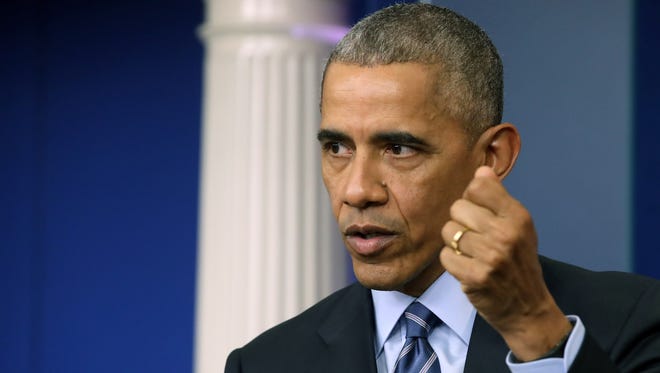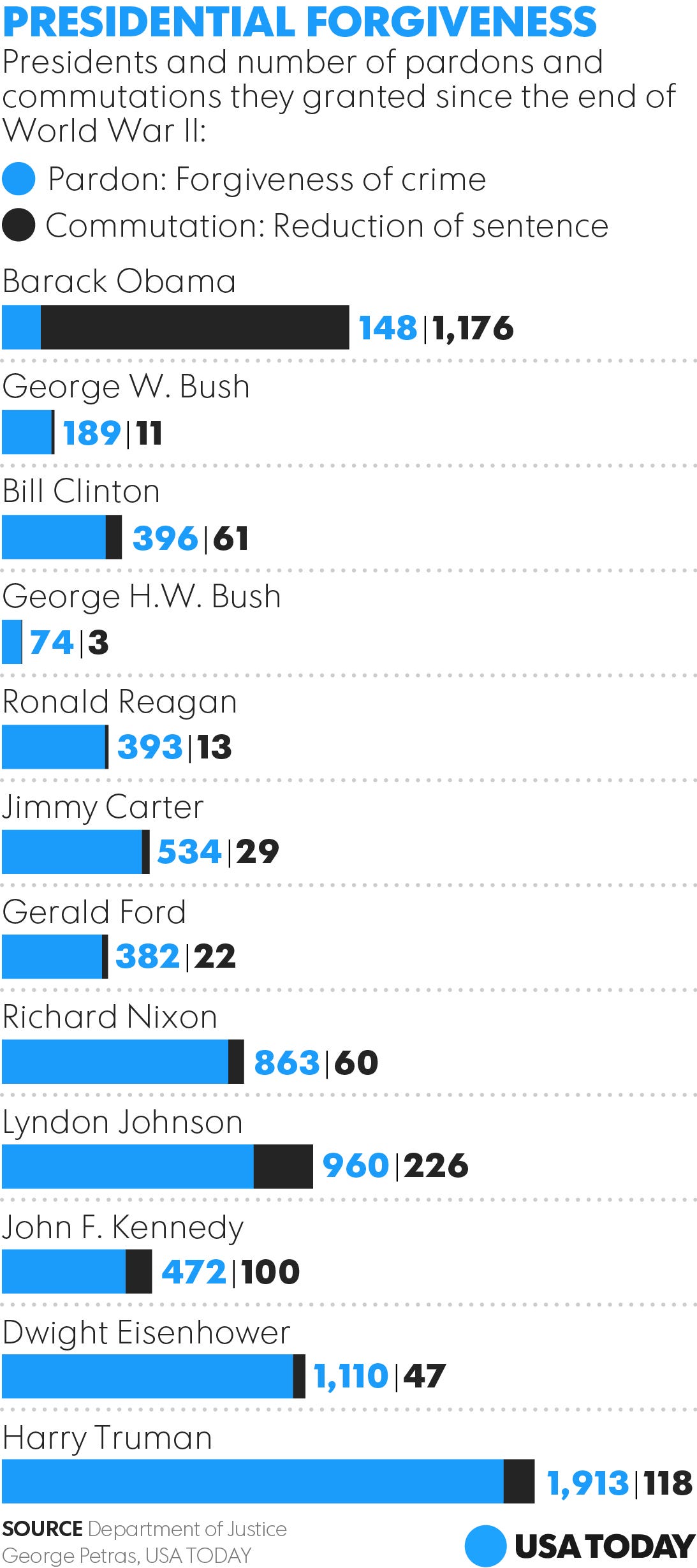Obama grants 78 pre-Christmas pardons in last-minute clemency push

WASHINGTON — President Obama granted 78 pardons and 153 commutations on Monday — a single-day record for the use of presidential clemency power as Obama engages in an historic end-of-term clemency surge.
With just 32 days left in office, Obama more than doubled the number of pardons he granted in the previous seven years.
And he continued his vigorous use of a lesser form of his clemency power, having now commuted the sentences of 1,176 federal prison inmates — mostly for long, mandatory-minimum drug sentences imposed during a war on drugs waged over the past three decades.
But time is running out for Obama to address the backlog of clemency cases at the Office of the Pardon Attorney. As of Nov. 30, there were 1,937 pardon petitions and 13,042 applications for a commutation of sentence still pending.
“We need the president to pick up the pace of commutations before he leaves office," said Michael Collins of the Drug Policy Alliance. “He is to be applauded for his actions thus far, but we know that the next occupant of the White House is unsympathetic to the cause of mass incarceration, and to the plight of those serving unjust sentences in federal prison.”
Obama began his clemency initiative in 2014 as a way to shorten the sentences of drug offenders given what he considered to be unduly harsh sentences. That effort has felt a new urgency since the election of Donald Trump, who has named as his attorney general one of the biggest critics of Obama's use of commutations. "The president is playing a dangerous game to advance his political ideology," Sen. Jeff Sessions, R-Ala., said after Obama granted a single-day record 214 commutations in August.
Overall, including both full pardons and commutations, Obama has now granted more acts of clemency since President Harry Truman.
With more than half of Obama's clemency actions taking place in his last year in office, pardon expert P.S. Ruckman Jr. called it "the greatest last-minute surge in history" — even exceeding President Bill Clinton's use of pardons in the last months of his presidency.

But unlike Clinton, who used his pardon power to help relatives and political allies, Obama's pardons on Monday did not include any of the more politically charged cases that activists have been urging him to grand his presidential mercy to. (Former secretary of State Hillary Clinton and former National Security Agency contractor Edward Snowden have not applied for clemency, and Obama says all pardons must go through the application process.)
Instead, the list of Obama's newest pardons reflects a variety of federal crimes including drug dealing, bid rigging, illegal gambling, possession of untaxed alcohol and the illegal importation of tortoises.
Yes, tortoises. Ralph Hoekstra of Huntington Beach, Calif., was sentenced to a year of probation and a $5,000 fine in 2005 after pleading guilty to buying dwarf Indian star tortoises off of a reptile enthusiast website.
Obama's actions followed a pattern of pre-holiday clemency that critics have called "part of a broken process." While Obama has begun to shorten prison sentences through commutations more regularly, his full pardons have largely been a once-a-year phenomenon. Aside from four Iranian-Americans pardoned as part of a hostage swap that accompanied the Iran nuclear deal, his last four rounds of pardons have come the week before Christmas.
With 148 total pardons, that means Obama still has a way to go in order to meet his promise to that the number of pardons will be "roughly in line with what other presidents have done." President George W. Bush pardoned 189 people, and Clinton pardoned 396. Among modern presidents, only one-term President George H.W. Bush pardoned fewer.
In a blog post, White House Counsel Neil Eggleston said he expects Obama to grant more pardons and commutations before leaving office. But he also stressed that the use of clemency was a stopgap solution to a systemic problem.
"The mercy that the president has shown his 1,324 clemency recipients is remarkable, but we must remember that clemency is a tool of last resort and that only Congress can achieve the broader reforms needed to ensure over the long run that our criminal justice system operates more fairly and effectively in the service of public safety," Eggleston wrote.
